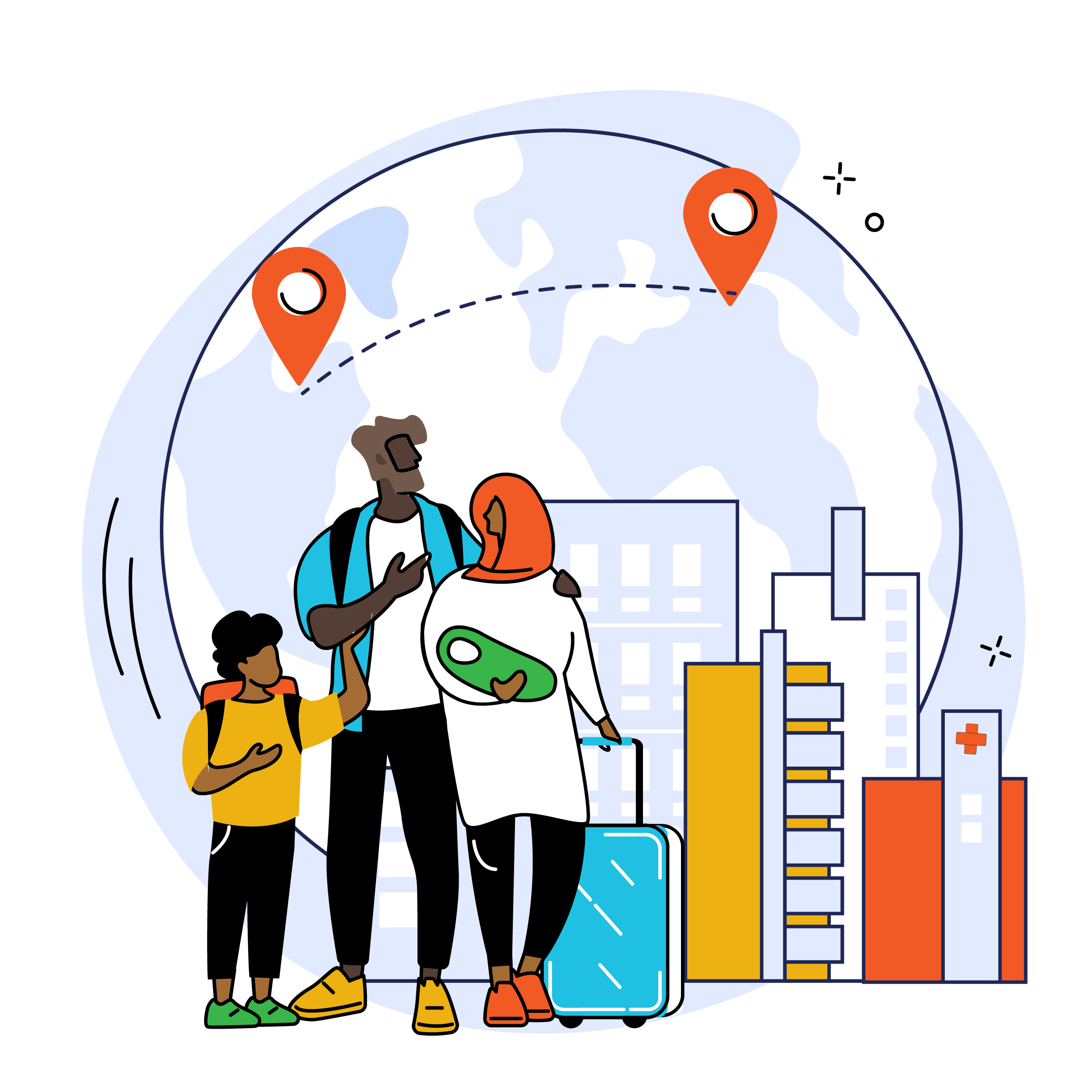Asylum Seeker Health Services
Asylum seekers have applied for protection visas to remain in Australia and are awaiting a decision. Asylum seekers arrive in Australia by plane and by boat, some arrive with valid visas, such as student or tourist visas, while others arrive with no visa. This means that asylum seekers may or may not be on a ‘bridging visa’. People who are asylum seekers are among the most disadvantaged people living in Victoria, often receiving little or no Commonwealth government income support.
While their applications for permanent residence in Australia are being determined, asylum seekers may be issued a number of different visas by the Commonwealth government. Some visa conditions restrict access to Medicare and the right to work. If a person does not have work rights, they will often not have access to Medicare. Entitlement to work rights and Medicare can change during the course of the process to determine a person’s refugee status.
For more information see: ‘Guide to asylum seeker access to health and community services in Victoria’

referral
referral
Specialised and Intensive Services (SIS)
Specialised and Intensive Services (SIS) is a component of the Humanitarian Settlement Program (HSP) available to humanitarian entrants and other eligible visa holders who have complex needs. SIS offer clients short term needs-based support to help them access appropriate mainstream services and develop the necessary skills to manage their needs independently.Visit
referral
Refugee Health Program
The Refugee Health Program (formerly the Refugee Health Nurse Program) operates in 15 local government areas of Victoria.Find out more
referral
Priority Primary Care Centres (PPCC)
Priority Primary Care Centres (PPCCs) provide GP-led care to people who need urgent care, but not an emergency response. Each PPCC is partnered with a busy emergency department. Care is available to anyone with or without a Medicare card, at no cost to the patient. (Costs may be required for imaging, pathology and other services.)Visit
referral
Asylum Seeker Resource Centre (ASRC)
The ASRC Health Centre has been offering health services to people seeking asylum in Victoria since 2002 and is the largest facility of its kind in Australia. It provides a range of primary health services for people seeking asylum living in the community and prioritises people seeking asylum without access to Medicare. It plays an important role in upholding health as a human right.Visit
referral
Australian College of Optometry (ACO)
Australian College of Optometry (ACO)also provide an extensive outreach program for people who have difficulty accessing traditional eye care services including people who are experiencing homelessness, refugees and asylum seekers, and people in supported residential services.Visit
referral
Emergency Dental Treatment
Royal Dental Hospital of Melbourne: If the client needs an emergency appointment, please contact 1300 360 054.Visit
referral
Royal Children’s Hospital — Immigrant Health Service
Immigrant Health Service provides a comprehensive approach to physical and mental health for children and young people who arrived as refugees or seeking asylum. The service is free of charge for all refugee and asylum seeker children.Visit
referral
Foundation House (Victorian Foundation for Survivors of Torture and Trauma): Direct Services
Clients receive a comprehensive range of services including counselling (individual, family and/or group), mental health clinic services, complementary therapies and referral services that are free, confidential and voluntary. We also use professional interpreters as required.Visit
referral
Life Without Barriers
Life Without Barriers can help you access the services you need while a decision is being made about your visa and immigration status.Visit
referral
Settlement Services International (SSI)
The Federal Government’s Status Resolution Support Services (SRSS) program provides assistance to eligible asylum seekers, including accessing financial support, accommodation, healthcare, employment and education.Visit
referral
International Health and Medical Services (IHMS)
IHMS provides healthcare to detainees within Australia’s onshore immigration detention network, as well as offshore in Nauru.Visit
referral
Victorian Infectious Diseases Service (VIDS)
The Royal Melbourne Hospital provide comprehensive inpatient and outpatient services to patients with infectious diseases. Patients need a referral from their GP or healthcare provider to access this service.Visit
referral
Cabrini Asylum Seeker and Refugee Health Hub
The Cabrini Asylum Seeker and Refugee Health Hub provides access to a range of health services for people seeking asylum and newly arrived refugees.Visit
referral
Utopia Refugee and Asylum Seeker Health
Bulk-billed medical services are provided to refugees and asylum seekers by GPs who are experienced in refugee health, refugee health nurses, social and emotional well-being. This service is located in Hoppers Crossing.Visit
referral
IPC Health Refugee Health Program
Refugee Health Nurses, Community Case Workers and allied health at Sunshine and Hoppers Crossing. GP clinics at Hoppers Crossing, Deer Park and Wyndham Vale.Visit
referral
Kensington and Footscray— Cohealth
Our specialised refugee and asylum seeker health nurses and support workers assess each person’s physical and mental health needs to connect people to the right health and social services.Visit
referral
Ringwood East- EACH
Our Refugee Health service supports newly arrived refugees or asylum seekers with a thorough assessment of their current health and treatment or preventative interventions to ensure existing or at-risk conditions are managed appropriately.Visit
resource
resource
Information about People who are in Community Detention
Some asylum seekers are released from immigration detention facilities into the community under Residence Determination arrangements. Placement in the community allows people to move about without being accompanied.Find out more
resource
Free Ambulance services for people seeking asylum
Emergency ambulance services for community-based asylum seekers with no capacity to pay are free in Victoria. For more information see the Department website.Visit
resource
Free Hospital Access for people seeking asylum
Policy Document for Victorian Hospitals. This policy outlines hospital access arrangements for people seeking asylum living in Victoria. While many people seeking asylum will have access to a Medicare card, some do not. All Medicare ineligible people seeking asylum are to be provided full medical care in Victorian public hospitals as admitted, non-admitted or emergency patients. You can also find a guidance note on ‘Identifying a person seeking asylum’.Visit
